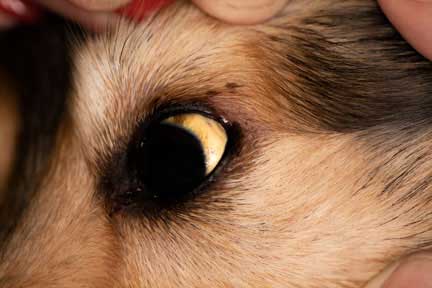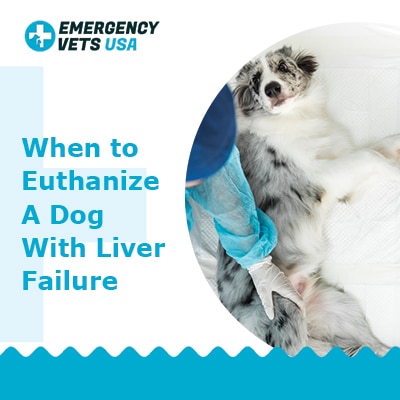
Liver disease can have a number of different causes such as. This can vary substantially based on the above information.

The end stage of liver disease is the one in which the liver has been almost fully consumed with dead tissue.
How long can an old dog live with liver disease. This type of liver disease requires prompt veterinary treatment and the prognosis varies widely. The Merck Veterinary Manual notes some dogs can live more than 5 years after diagnosis. As with other liver diseases the sooner get a diagnosis and treatment initiates.
A dog with liver disease has a life expectancy of a few months to years left to live. The life expectancy ultimately depends on the cause of the liver failure how far progressed it is once diagnosed and the available treatments for your individual dog. This can vary substantially based on the above information.
How long can a dog live with high liver enzymes. According to Emergency Vet USA liver failure can sometimes develop slowly and sometimes progress faster. Therefore it is essential not to ignore any signs of liver failure in your dog as this may affect the need for dog euthanize.
In the early stages of liver failure we see abnormal inflammation. The life expectancy of a dog with liver failure depends on the underlying cause and whether or not it is treatable. For example a dog with a liver cancer may live happily for many years if the cancer is small and slow growing.
Like kidney failure liver disease in dogs are classified into four stages. The first stage of liver disease in dogs is inflammation ie. Hepatitis which is an inflamed liver.
At this stage the dog shows no pain and few or no symptoms. If diagnosed at this stage the liver disease can usually be treated successfully using medicine. Canine liver disease is split into different stages according to the variety of symptoms and the damage that has been done to your pets liver.
The end stage of liver disease is the one in which the liver has been almost fully consumed with dead tissue. The result is that the liver function is as low as it can get. Typically end stage liver.
Chronic liver disease occurs gradually and can be caused by an ongoing health condition like cancer or diabetes. Acute liver failure comes on suddenly and requires immediate medical attention. Poisoning is one of the most common reasons for acute liver failure.
Liver disease can have a number of different causes such as. Your vet will run a special blood panel for older dogs. Bloodwork may be able to catch liver disease in its early stages.
Older dogs should visit the vet at least twice a year. By visiting the vet twice a year you may be able to catch liver disease in its early stages potentially increasing the life of your dog. For starters if the other liver enzymes are normal the dog has not lost weight bloodwork is otherwise perfect many veterinarians will simply recheck the blood in a couple months.
If everything else stays in line and the Alk-P is not rapidly rising maybe even dropping well be happy shrug our shoulders and say well keep tabs on it. This type of liver disease in dogs is brought on by viral bacterial fungal or parasitic infections that make their way into your pups system. These infections can cause the liver to swell hindering its ability to perform its normal functions.
Some of the most common infectious liver diseases in dogs include. If a diagnosis is made early canine liver disease can usually be treated or at least managed to improve your dogs quality of life. While the method of treatment varies depending on the underlying condition the goal is to get rid of any harmful toxins promote the healing and regeneration of liver tissue and keep the dog in as best shape as possible until normal liver function can be restored.
Life Expectancy for Dogs With Liver Cancer The best case scenario is that your dog has a single mass that can be completely removed surgically. Then your dog can live healthfully for another four years or more. Diffuse and nodular liver cancers in dogs have a poor prognosis.
If your dog is diagnosed you may be wondering how to take care of your dog with liver disease. Treatment of any hepatic disease is aimed at resting the liver and minimizing those functions that have to do with metabolism of fats proteins carbohydrates and drugs. Many dogs with liver disease can discontinue medications and eat regular life-stage maintenance food once their liver issue is resolved.
That said it all depends on the specific diagnosis. Dogs with chronic liver disease must generally eat a therapeutic diet and take some liver-support medication long-term. While some pet parents discover a dogs cancer during a drastic decline in their health others may discover the issue during a routine exam of their happy pup.
Some dogs will have a short span of happy days after their cancer diagnosis. And others will continue to live comfortably for months on end. Most vets will prescribe medication or a change in diet to treat stage one of liver disease.
The second stage of liver disease occurs when fibrosis is present. Fibrosis occurs when the irritated and inflamed liver begins to harden and scar. A healthy liver that is in stage two of liver disease will start to turn healthy tissue into scar tissue.
There are a number of diseases that can affect the functioning of a dogs liver and lead to enlargement. An enlarged liver in dogs can often be accompanied by ascites or fluid accumulation in the abdomen. Those with ascites will have an abnormally swollen belly.
An enlarged liver is most commonly found in older dogs.